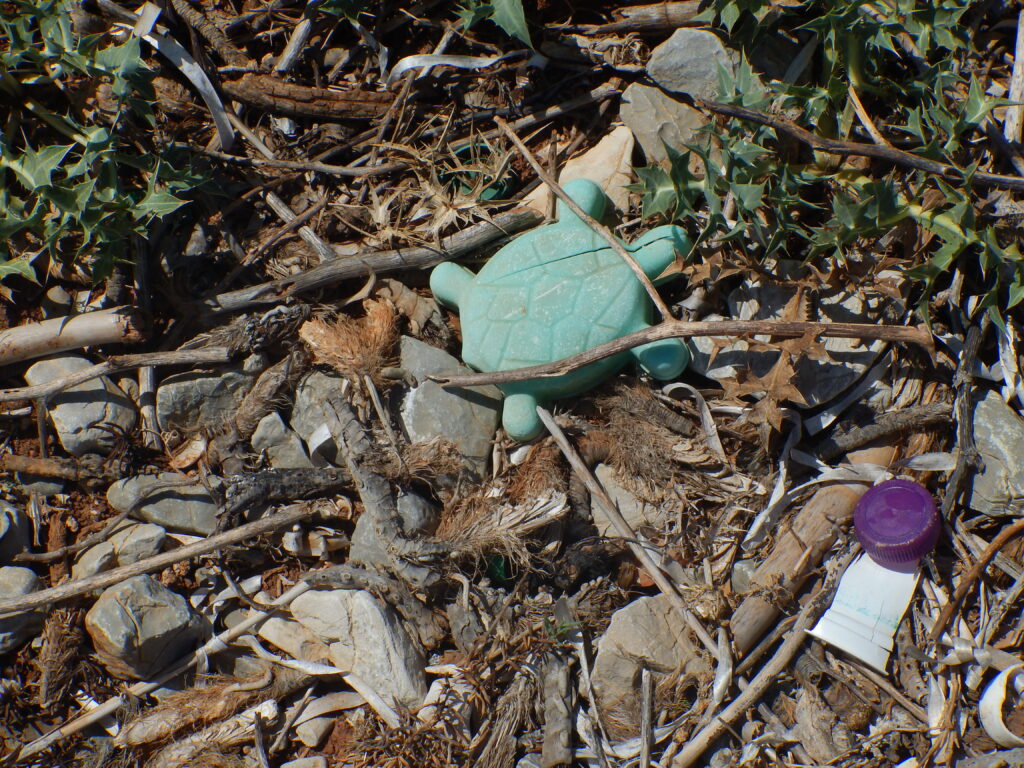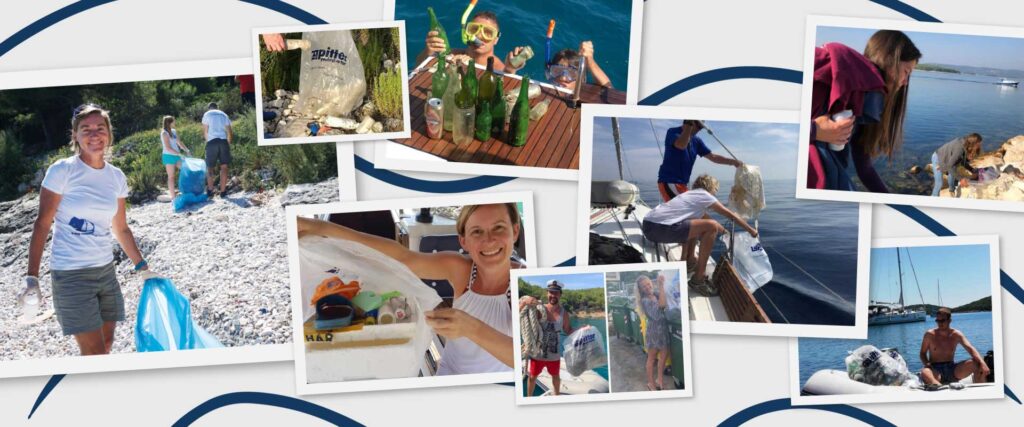Environmental and marine protection while sailing
Why protecting the environment and the sea is so important
The fascination for the sea not only brings unforgettable sailing experiences – it also comes with responsibility.
As sailors, we operate in a particularly sensitive ecosystem that is threatened in many ways: by pollution, overfishing, climate change and reckless mass tourism. But if you sail with your eyes open, you can make a valuable contribution to protecting the oceans through prudent behavior – often with simple means.
Our oceans cover more than 70 % of the Earth’s surface, produce more than half of the oxygen we breathe and regulate the global climate. At the same time, they are a habitat for millions of species – from tiny plankton to majestic whales. But plastic waste, oil, noise and environmental toxins are threatening this balance. Diversity is shrinking, water temperatures are rising and many marine regions are already considered to be heavily polluted.
As sailors, we have a special connection to the sea – and the chance to actively do something to protect it.
Environmental and marine protection while sailing
What sailors can specifically contribute to marine conservation

Avoid waste – especially plastic
- Avoid single-use plastic on board: refillable drinking bottles, reusable storage boxes and shopping bags make all the difference. Garbage should never go overboard – not even supposedly “organic” items such as fruit scraps, which can disrupt the nutrient balance in sensitive coastal regions.
Waste water and chemicals: conscious use and disposal
- Look out for biodegradable products when buying cleaning products, shampoos etc.!
Anchoring with consideration
- Do not anchor in seagrass beds or sensitive bottoms. These habitats are important refuges for juvenile fish and endangered species. Use buoy fields where available and find out about regional protected areas.
Reduce engine running times and noise
- Not only emissions, but also noise can disturb marine life. Minimize the use of generators and outboard motors to the bare minimum – especially in quiet bays or at night. In the Nautic Alliance fleet, we have a large selection of yachts equipped with an intelligent battery storage system and solar panels, eliminating the need to use noisy generators at night.
Buy regional products
- Support local fishermen and markets instead of imported supermarket goods. Look for seasonal and sustainable products – this is not only more environmentally friendly, but also a culinary experience.
Raising children’s awareness of environmental protection – playfully and sustainably
Children also feel the fascination of the sea – and this is a wonderful opportunity.
Explaining to children at an early age why the sea needs protection fosters a deep awareness that will stay with them for the rest of their lives. It is important to do this in a child-friendly way, without overwhelming them, and with curiosity instead of pointing fingers.
Tip:
Many children love responsibility! Give them small tasks on board: e.g. “garbage officer” or “seagrass meadow scout” – this raises awareness in a playful and fun way.
Beach treasure hunt with added value
Instead of just looking for shells, you also collect garbage. Whoever makes the biggest “find” wins – and incidentally learns how much garbage can be found even in remote places.
Get to know marine creatures
Children’s books, apps or simple identification cards can be used to identify fish, mussels and seabirds. This not only promotes knowledge of species, but also respect for diversity.
“Why is that floating there?”
Use observations (plastic bottles, oil film, jellyfish) as a conversation starter, in a child-friendly and honest way. Children are often more attentive observers than adults.
Be a role model
Children imitate the behavior of adults. Those who consistently avoid waste, shop sustainably and anchor with consideration convey values – without a lot of words.
Sea quiz on board
Expand your knowledge with simple questions – e.g. “What does a sea turtle eat?”, “How long does a plastic bottle take to decompose?” or “How do you recognize a sea grass meadow?”.
Telling stories instead of lecturing
Children learn by imitation. Show them to separate waste, save water and buy sustainably – without a lot of words.
Together for clean oceans
Environmental awareness can also be combined with enjoyment and comfort on a sailing vacation. Those who pay attention to sustainability when choosing sailing areas, on-board routines and shopping will experience the sea more intensively – and leave fewer traces behind.
A respectful approach to nature and the environment is not only an expression of mindfulness, but also a sign of real quality on vacation. As a charter guest, you can set a good example – and show that responsible travel and unforgettable experiences go hand in hand.
Tips for a sustainable start to your cruise
- Bring small garbage tongs or a collection bag for walks on the beach.
- Take biodegradable cleaning products and sunscreen without microplastics with you.
- Choose ports and charter providers – like the members of the Nautic Alliance – that are committed to sustainability!

O More Mati
Keep the sea clean!
Through the beach cleaning campaign “O More Mati” initiated by Pitter Yachtcharter, our charter guests actively contribute to removing washed-up garbage from the beaches and bays of Croatia.

Clean up beaches and win a charter week!
Since 2014, Pitter Yachtcharter has been calling on charter guests to remove garbage from bays and beaches in Croatia. A simple, meaningful activity for young and old – with a positive effect on our environment and the chance to win a great prize!
Sailing in conjunction with environmental protection does not mean sacrifice, but enrichment.
Nautic Alliance
The beauty of the sea becomes all the more precious when we understand how fragile it is – and what we can all do to help preserve it.